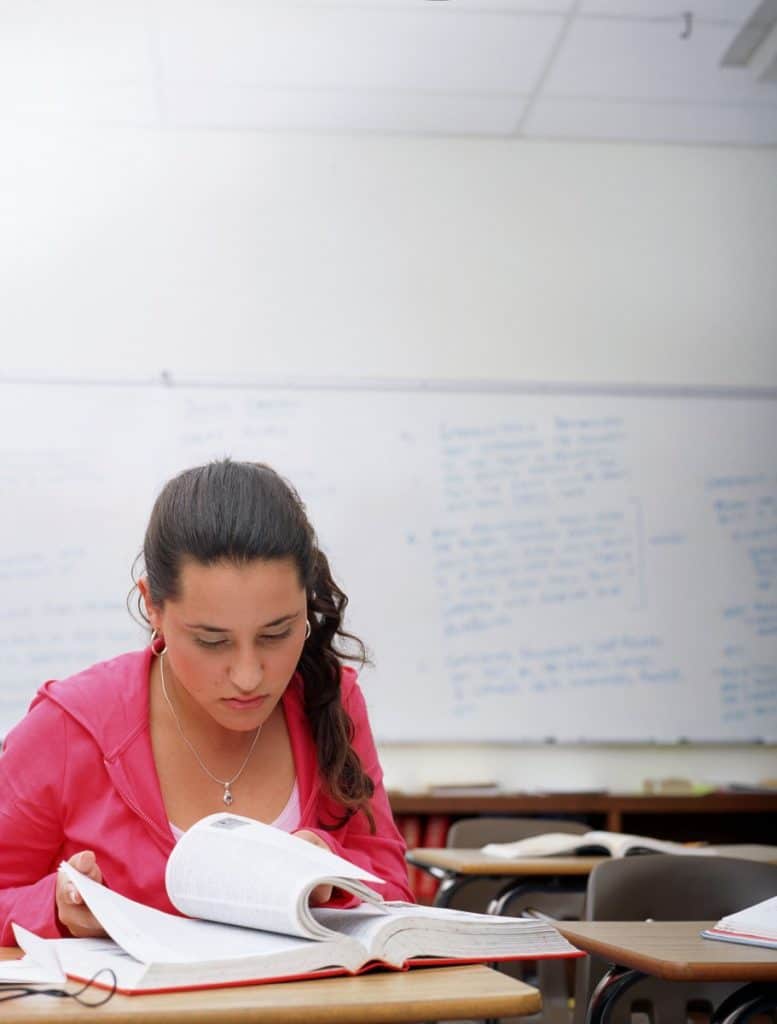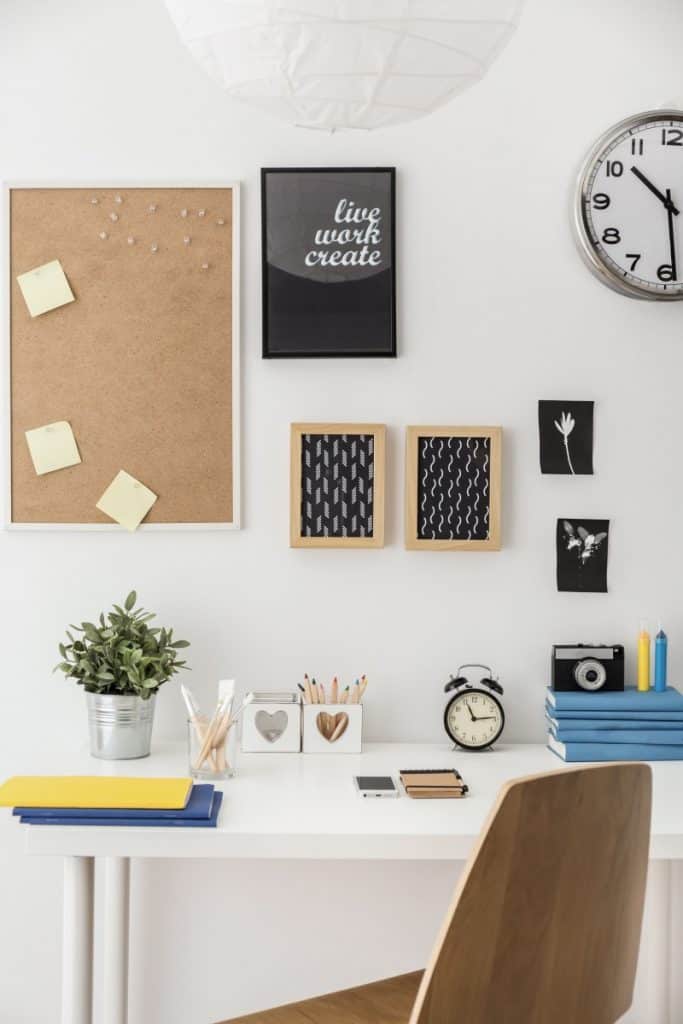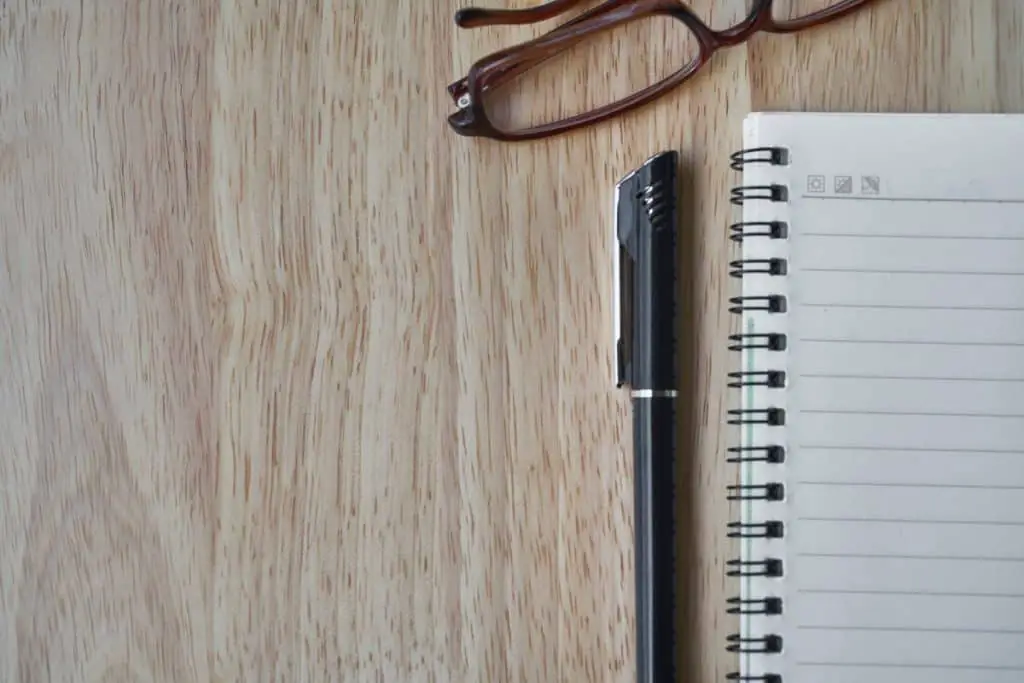How To Make Myself Study – A Guide

Procrastination is never a great thing, but when you are a student, and you can’t find the motivation to study; you have a serious problem. I have totally been there and learned some hard lessons along the way. Today I aim to prevent you from having to learn any (or anymore) of those hard lessons.
So how do you make yourself study? Enclosed below is a list of things you can do to jumpstart your studying:
- Identify Why You are Procrastinating
- Forgive yourself for past procrastination
- Get outside/Change environment
- Clean/Simplify Study Space
- Set realistic study goals
- Create a trackable study schedule
There are numerous tips and tricks to make yourself study, but if you want to solve the big problem of lacking the motivation to study, then first you have to know why you are pushing it off to begin with. Sometimes it is because we are lost and don’t know where to start; other times it’s our fear of failure that has us paralyzed, and lastly, the all familiar, distractions that eat up our planned study time.
After determining what the problem is, there are several ways to help you correct it in the long term. Whether that is making a plan, working through your fears, cutting distractions, or a combination of these, I have some routines that will help you out. But what if you are reading this too late for all that? If you have a test coming up tomorrow and you need to study right now, I have a little, quick start routine for that as well. As I mentioned, this was a huge problem for me, and it took a lot of research, changed behaviors, and the implementation of routines to turn around my study habits.

All of these things I have listed are actionable right now, depending on where you are on the I need to make myself study windmill. I will split them into two categories, how to make myself study right now and how to set up a lifestyle to make myself study consistently. Let’s dig in.
If you are looking to improve your writing, you should really check out Grammarly. Grammarly is a godsend for those who have to write term papers, dissertations, or anything else you write that needs to be grammatically correct. Grammarly doesn’t just check grammar either. It helps you to write clearly and effectively by checking for overused words and unclear phrases. Best of all, Grammarly has a great free tier to get started with. For more information on Grammarly, click the link below:
Grammarly – Great Writing, Simplified
If you are looking for the best study tools out there, you should read our article on the best study tools to enhance your studying at the link below:
The Ultimate Study Tools You Must Use to Succeed!
How to Make Myself Study Right Now?
If you have waited too late and you are in the throes of panic, I have some tips to bring you back to the center and help you get back on track. First, you have to relax and basically forgive yourself. If you are stressing and beating yourself up, it doesn’t matter how much you try to focus; it’s going to be useless. Truly take a second to just be ok with it for today and work on that problem later. Right now, you have to get in the mood to study; yay!
Next, get outside and take a walk; the fresh air and endorphins will help you relax and prepare you to focus. Just 15 minutes of exercise will do wonders, and getting out of your current environment will help you reset your mind. I know it sounds like a waste of time when you should be studying, but trust me. Plus, you’ve procrastinated this long; the benefits of mindfulness and nature will far outweigh the time lost in the books.

Now that you have reset your mind and body, its time to reset your study space. Make sure everything is cleared off of your desk and out of your space. This way, when you get to work, you won’t have any distractions, it will just be you and your study material. Even your phone should be in your bag or even better, in another room. After everything is put far, far away, pull out a blank paper and a writing utensil.
It is time to reassess your goal and make a new goal that you can actually achieve. Say its two days before the mid-semester test, and you are just now getting around to studying, I suggest you not have your eyes set on an A but definitely still try for a B. You don’t want to lower your expectations too much, you still want to have something to push yourself to achieve, but you don’t want to set yourself up for failing to meet your goal.
Now, pick one singular task that can be done in less than 2 hours. Whether it be review lecture notes or read the textbook, just pick one thing and write it down. At this point, your brain is primed for intense focus, and you should be able to finish the task you have written down easily. My last suggestion here is to keep your mind clear. Sometimes a task or important thing flashes in our head, and we feel the need to either take care of it right now or try to remember to do it when we get done studying. The best thing to d here is to write it down and get back to studying quickly.
How to Set Up a Lifestyle to Make Myself Study Consistently

As I mentioned, changing your habits requires a little bit of digging to find out the cause of the behavior you want to change. In this case, the behavior is procrastination. So, ask yourself, “why am I having a hard time studying?”. Generally, having a hard time studying is a matter of:
- Not knowing what to do
- Distractions
- General Procrastination or Lack of motivation
Luckily the first two problems are easily solvable, and I have some clear-cut methods to help. The third is a little trickier, but I still have quite a few sure-fire methods that haven’t let me down.
Have a Plan
Not knowing what to do can be solved with a little pre-planning. We already talked about how to make a study schedule (if you are looking for some more guidance on how to create a study schedule, check out our howto article here), but that was just to plan out when to study, now you need to know what to study. Luckily our professors help us out at least a little bit with this. The first place to start here is the class schedule. How detailed your class schedule depends on your teacher, but you should at least have an overview of what chapter or what concept you will be learning each week and the most important due dates like major tests and projects.

After you write down all of the important dates and topics to be covered, start to work backward. If you have to read a chapter a week, then you know that one of your study blocks for each week needs to be reading the chapter. At some point during the week, you need to review your lecture notes, probably do some homework and work on a large project. With these things in mind, you should be able to fill 6-8 hours of study time easily. I suggest you work in 2-hour time blocks per class so that you have time to get set up, warm up your brain, and get focused.
Create a Study Routine
Creating a ritual around your study time will help get you in the mindset to have a productive study session. For instance, if you always grab a granola bar and a cup of tea before you sit down to study, then just smelling that particular tea will put your brain in study mode. A good brain warm-up would be to review your upcoming important dates, review what you have scheduled to study, and make a shortlist of smaller goals to accomplish throughout your next 2 hours. After you have a clear plan of action, it is time just to do it.

Remember that the more you stick to your study schedule and routines, the easier it will get to start and maintain focus, and the less you will procrastinate on doing it. At first, you will have to keep a list of your routine around and make sure you are doing all the steps, but as time goes by and it actually becomes routine, you will do these things automatically, and studying will become second nature.
Cut out Distractions
If you are struggling with self-discipline already, like not being able to study when you are supposed to, then chances are you are going to struggle with impulse control in this area as well. What I mean is that if you already have a resistance to studying, then your best friends texts you or tags you in something, you are going to have an incredibly hard time ignoring the impulse to grab your phone and check it out. Impulse control eats up motivation, give yourself a break by getting away from your phone and Wi-Fi altogether.
Have an Organized Workspace
If your desk is covered in bills or Chinese food, you have nowhere to spread out your study materials and will probably have a hard time finding your highlighter too. In order to focus your energy on your schoolwork, make sure the only thing on your desktop is your schoolwork. If you choose to study outside of your home, make a study pack that includes all of your study supplies and nothing else. Now when you sit down to study, you have all your necessary materials and no extra distractions.

Distractions come in so many packages, and sometimes that is our own brain. The one exception to the clean desk or study pack rule is that you should also keep a scrap piece of paper or notebook nearby to empty your mind of non-study related things. If you are in the middle of reviewing your class notes and you suddenly remember that you need to pick up something from the store on your way home instead of trying to remember that task while also retaining new information, then you are not staying focused. So anytime a task pops into your head, write it down and go back to focusing.
Sleep, Hydration, and Nutrition
One last category of distractions is basic needs: sleep, nutrition, and hydration. If you don’t have enough sleep or proper nutrition and hydration throughout the day, then you are going to be more distracted than normal. If you need to, eat a snack and get some water before you start to study. I would suggest taking a short nap if needed, but we all know how easily a short nap becomes a 4-hour snooze that leaves you wide awake at 3 AM, and the cycle starts again.
Push Through
General procrastination or lack of motivation is a really tough one to beat. No matter how organized and conditioned we are to do a specific task, sometimes we’d just rather not. This is when again, we have to ask ourselves why we have a resistance to studying right now. I have found two major reasons from my own experiences. Either we simply have something more fun to do, or we have a fear of failure.

We all get caught up in a Netflix series or scrolling through social media and just want to ignore our study schedule. It’s pretty easy to see how this happens, but why? Basically, watching Netflix or scrolling through socials gives us a dopamine release. We know Dopamine as the feel-good drug, so obviously, it’s hard to tear ourselves away from that. With just a bit of practice in delayed gratification, I would find the same joy in accomplishing my goals.
Fear of failure wasn’t as clear to me at first because it came in the form of thinking the task was going to be difficult. I didn’t want to start because I thought it would be taxing. Really, I was overestimating the difficulty and underestimating myself; you are too. Most of the time, once I got started, I realized how easy it really was or even became enthralled with pushing my brain to expand for the project.
The big answer to both of these problems is flow. This is a word that we all know and understand; we have all been in the zone and basically slaying it, right? But I was never really looking into this concept until I started trying to put it into words. Basically, when we are in our flow, we are not only performing at our optimum, we are also getting that dopamine release.

So how do we get in the flow? By triggering and maintaining our dopamine response, of course. Getting started is always the hardest to start with a common dopamine trigger, exercise. It doesn’t have to be intense. But like I mentioned already, a 15-minute walk will refresh your brain and body enough to get you started. A quick walk might be the perfect thing to add to your pre-study routine.
Another dopamine trigger is pattern recognition; our brain likes simple puzzles. I use this one religiously every time I need to get some work done. For me, it starts with opening my planner; at this point, my brain already knows what’s up. I look at my week and make a note of what I need to get done in the next two hours to stay current with my schedule. Then, I make a detailed list of the steps needed to accomplish this goal, which propels me into the next dopamine trigger, goal achievement.
By breaking down my main objective into smaller milestones, I am able to capitalize on that feeling of achievement. I absolutely love being able to check off a task on a list! This can also be a time achievement. For example, using the Pomodoro method, the goal is to focus for 25 minutes before taking a break. This really helps out on days where I am especially unmotivated or unfocused.

The last dopamine trigger I often encounter is complexity. It turns out, our brains like hard puzzles too! If you haven’t done any research into the whole concept of flow this is one that I am sure you automatically think of when you think of flow. When we feel as though our brain is just working so perfectly that our task is practically doing itself.
So, for a quick example of these concepts put together, when you block 2 hours of time for a specific task, it looks like this:
The first 25 minutes is set up time, it doesn’t always take this long, but I do keep working until my timer goes off. Also, sometimes just doing this setup routine is enough for me to hit my flow. If that happens, I ignore the first break and reset the timer for another 25 minutes. Otherwise, I take my break as usual.

The second 25 minutes are where I really dive in; this is where I usually hit my flow and get a huge amount of work done. When the timer goes off for the second break time, I always take the break. This helps maintain the energy that you put into the first block of work. I take anywhere from 5 to 10 minutes, and I make sure to get up and leave my study area so that I am taking a true break.
The chances are that at some point in that first hour, you will hit your flow; but if not, you are already halfway done, you only have two more rounds of 25 minutes left to push through. I try not to never put a solid end time for a study session. If I hit a really good flow and my timer tells me my study time is over, I don’t want to have to cut off my focus.
Honestly, If I was in the middle of a project or finally understanding a hard concept and I had to stop to go to another class, it would ruin my flow, and my next class since I would be half focused on my lecture and half focused on what I was just doing.

On the flip side of that, if you accomplish the tasks you set out for yourself in this block of time, and you still have time leftover, feel free to reward yourself with taking off early for a scone and an iced latte. You totally deserve it!
But if you are feeling focused and want to do some extra credit for yourself, explore the topic. Ask questions of yourself and try to work out the answers or ask questions to YouTube and hear it from an expert. Picking up little blocks of extracurricular study time will exponentially deepen your understanding of each topic and help you connect all the separate subjects into a full picture of your major.
Want More Tips and Tricks? Subscribe to our Newsletter!
If you haven’t already subscribed, please subscribe to The Productive Engineer newsletter. It is filled with tips and tricks on how to get the most out of the productivity apps you use every day. We hate spam as much as you do and promise only to send you stuff we think will help you get things done.
Check Out Our YouTube Channel!
We have a YouTube channel now and we are working hard to fill it with tips, tricks, how-tos, and tutorials. Click the link below to check it out!
Check out our Resources Page
Check out our resources page for the products and services we use every day to get things done or make our lives a little easier at the link below:







